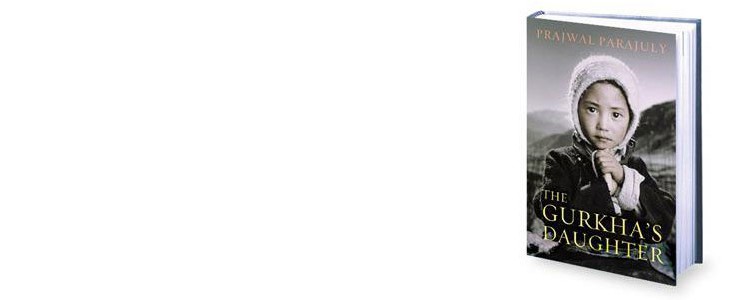Masha Gessen ( from The Economic Times, 31 Oct 2013)
 ( Last year I read Masha Gessen’s book on Putin- The Man Without a Face: The Unlikely Rise of Vladimir Putin. It was a powerful book and well written. I recommended it to friends but never wrote a review of it. In today’s The Economic Times Ullekh NP has written a column about Masha Gessen, her books, including her forthcoming one on the feminist punk group, Pussy Riot – Words Will Break Cement: The Passion of Pussy Riot. Here is the original url to the article: http://economictimes.indiatimes.com/news/news-by-industry/et-cetera/goodbye-to-vladimir-putins-russia/articleshow/24957553.cms but I am also c&p it below. )
( Last year I read Masha Gessen’s book on Putin- The Man Without a Face: The Unlikely Rise of Vladimir Putin. It was a powerful book and well written. I recommended it to friends but never wrote a review of it. In today’s The Economic Times Ullekh NP has written a column about Masha Gessen, her books, including her forthcoming one on the feminist punk group, Pussy Riot – Words Will Break Cement: The Passion of Pussy Riot. Here is the original url to the article: http://economictimes.indiatimes.com/news/news-by-industry/et-cetera/goodbye-to-vladimir-putins-russia/articleshow/24957553.cms but I am also c&p it below. )
Masha Gessen, who wrote a hard-hitting book on Putin and has another on Pussy Riot up her sleeve, now prepares to leave a homophobic Moscow
When several of his opponents began calling Russian President Vladimir Putin a “kleptomaniac” for allegedly looting the country’s wealth, writer and journalist Masha Gessen came up with an exotic term: “pleonexia”.
She didn’t find kleptomania — which refers to a pathological desire to possess things for which one has little use — apt enough to describe the characteristics of Russia’s most powerful man, she says. Pleonexia refers to an insatiable desire to have what rightfully belongs to others.
“That is the right term,” says Gessen, who chronicled Putin’s rapid rise from a low-level KGB operative to the country’s president, in The Man Without a Face: The Unlikely Rise of Vladimir Putin, published last year. When the book came out, well-wishers asked her to leave Russia — but she didn’t.
Don’t Want to Lose Kids
Gessen, who is now working on a book on the feminist punk band Pussy Riot, which captured world attention by protesting against Putin, confirms that now she has decided to leave Russia for good. It is not out of fear of retribution, but because Russian authorities are in the process of bringing in a law that could see same-sex couples lose custody of their children. She and her girlfriend will move to New York along with their children shortly.
“I don’t want to lose my children,” she says.
Gessen, author of books as stellar as Perfect Rigour: A Genius and the Mathematical Breakthrough of the Century, a riveting account of how Russian mathematician Grigori Perelman solved the complex Poincare Conjecture, is now highly pessimistic about the future of the Russian economy.
After three years of crackdown on pro-democracy protests in the country — the past one year was the worst — Gessen says she has lost hope about the largest country in the world getting back on track anytime soon. “On all fronts, there is failure,” she says, about the system which persecutes journalists and others who run afoul of the government. Her book on Putin offers a chilling account of, among others, the killing of journalist Anna Politkovskayaand the death of journalist-turned-FSB officer Alexander Valterovich Litvinenko, both in 2006.
Pussy Riot vs Putin
Gessen — whose books and articles have dwelt at length on why entrepreneurs such as Mikhail Khodorkovsky, former chief of Russian oil giant Yukos, often end up in jail in Putin’s Russia — says that none of them was punished for their excesses or shady business deals but, instead, for standing up against Putin.
“Khodorkovsky will stay in jail until Putin is removed,” she says, adding that an economic upheaval is necessary to effect a change in Russia. She, however, doesn’t see Putin’s “military-political project” getting derailed in the short term.
The 46-year-old says that she often had to chase her “sources” for years. One of them was St Petersburg-based politician Marina Salye who fled to the countryside after she received threats. According to Gessen, a probe led by Salye almost unearthed Putin’s alleged corruption deals before he was thrust to the prime minister’s post by Boris Yeltsin’s inner circle in 1999.
Gessen argues that the arrest of Pussy Riot members for protesting against Putin last February marked the beginning of the most oppressive era of post-USSR Russia. After five members of the feminist punk group staged a “protest performance” in a Moscow church, three of them were charged with hooliganism and two among them — Nadezhda Tolokonnikova and Maria Alyokhina — were sent to jail for a two-year term. Gessen’s book on the band, Words Will Break Cement: The Passion of Pussy Riot, will be out in February next year.
Ullekh NP
31 Oct 2013




















